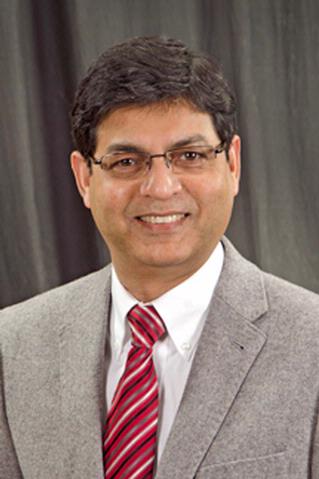A. Rahman Lab
Lab Trivia Questions
- How much of your weight is attributed to endothelial cells?
- How many endothelial cells are in your body?
- If all the endothelial cells in your body were lined up end-to-end, how many times would they wrap around the circumference of the earth?
- If all the blood vessels in your body were laid in a straight line, how many miles would the line cover?
You will find the answers to these questions as you go through the lab research description below.
Mechanistic Targets in Acute Lung Injury
Our lab is interested in the mechanisms of lung vascular endothelial cell dysfunction in acute lung injury (ALI). ALI is a common cause of respiratory failure in critically ill patients, and has a high mortality rate of 25-30%. This is primarily due to a lack of curative interventions. Our mission is to understand the processes underlying the development and resolution of ALI, with the ultimate goal of identifying therapeutic targets to resolve the injury in patients.
We use a creative integration of in vitro and in vivo studies to identify the pathways of endothelial cell inflammation and permeability, and assess the relevance of these pathways in the setting of ALI in mice. The premise is that pulmonary endothelial cells not only serve to separate the blood contents from the extravascular space, but also provide the first barrier for inflammatory cells migrating to the interstitial and alveolar space; hence, they offer an attractive cellular context for targeting the detrimental and/or promoting the beneficial signaling events to limit or reverse ALI.
Current projects in the lab are investigating the role of spleen tyrosine kinase (Syk), mechanistic target of rapamycin (mTOR), and autophagy in regulating endothelial cell responses in ALI. Our novel and exciting findings that Syk and autophagy promote whereas mTOR limits endothelial inflammation form the basis of our ongoing research to identify the mechanistic basis of their actions, and evaluate the protective and therapeutic benefit of modulating them, either alone or in combination, against ALI.
In a nutshell, research in our lab uses genetically modified mice, primary endothelial cells, and multidisciplinary approaches ranging from biochemical, cellular, and molecular biology to in vivo gene delivery (cell-specific transfer of genes and shRNA to lung endothelium) and multiple mouse models of ALI to identify viable therapeutic targets and mechanisms to limit or reverse ALI.
Answers to Trivia Questions
- 1 kg (2.2 lb)
- 50-75 trillion
- > 4 times around the circumference of the earth
- 100 miles

Arshad Rahman, Ph.D.
Principal Investigator
Recent Publications
- MTOR maintains endothelial cell integrity to limit lung vascular injury.; The Journal of biological chemistry. 2024 Nov 05.
- Occludin Is Essential to Maintain Normal Alveolar Barrier Integrity and Its Protective Role During ARDS Progression.; International journal of molecular sciences; Vol 25(21). 2024 Oct 29.
- Identifying novel data-driven subgroups in congenital heart disease using multi-modal measures of brain structure.; NeuroImage; Vol 297, pp. 120721. 2024 Jul 04.
- Spleen Tyrosine Kinase phosphorylates VE-cadherin to cause endothelial barrier disruption in acute lung injury.; The Journal of biological chemistry; Vol 299(12), pp. 105408. 2023 Oct 28.
Lab Members
Principal Investigator
Arshad Rahman, Ph.D.
Arshad_Rahman@URMC.Rochester.edu
Research Interests: Understanding how lung microvasculature becomes inflamed and leaky during acute lung injury (ALI) with the primary focus of developing new treatment strategies for ALI that are safe, effective, and based on deeper understanding of the mechanisms involved in ALI pathogenesis.
Post-doc
 Michelle Warren Millar, Ph.D.
Michelle Warren Millar, Ph.D.
Michelle_Millar@URMC.Rochester.edu
Research Interests: Role and regulation of mTOR complexes and autophagy in lung vascular inflammation and injury
Mohammad Shadab, Ph.D.
Mohammad_Shadab@URMC.Rochester.edu
Research Interests: Role and regulation of Syk and autophagy in lung vascular inflammation and injury
Rauf A. Najar, Ph.D.
Rauf_Najar@URMC.Rochester.edu
Research Interests: Role and regulation of MIRO1 and MTHFR (methylenetetrahydrofolate reductase) in lung vascular inflammation and injury
Graduate Students
Imran Tahir
Graduate student (rotation)
itahir@ur.rochester.edu
Research Interests: Mechanisms of endothelial cell dysfunction in acute lung injury
Yaqi Du
Visiting Graduate Student
Undergraduate Students
Kevin O. Castro
Undergraduate student
kcastro5@u.rochester.edu
Research Interests: Role of p300 in endothelial cell barrier disruption in acute lung injury
Affiliations
News & Events
- Congratulations to Michelle and Ryan Millar on the birth of their son Connor!
- Dr. Mohammad Shadab won the Best Research Poster Award in trainee category on Pediatrics Research Celebration Day, October 30, 2019.
Arshad Rahman, Ph.D. & Fabeha Fazal, Ph.D.
- Dr. Rahman and Dr. Fazal receive new NIH R01 grant from the National Institute of General Medical Sciences (NIGMS) to study “Regulation of Endothelial-Neutrophil Interaction and Lung Vascular Permeability in Sepsis”. Additional collaborators on this project include Minsoo Kim, Ph.D., and Anthony P. Pietropaoli, M.D.
Michelle Warren Millar, Ph.D., Awards & Presentations
- Dr. Warren Millar won the Best Research Poster Award in Postdoc category on 11th Annual Lung Biology Research & Trainee Day, January 11, 2019.
- Dr. Warren Millar presented a poster at the North American Vascular Biology Organization Conference, Newport, Rhode Island, October 14-18, 2018.
- Dr. Warren Millar won the Best Research Poster Award in trainee category on Pediatrics Research Celebration Day, October 11, 2018.
- Dr. Warren Millar received a Travel Award from the UR Center for Professional Development to attend North American Vascular Biology Organization Conference.
Contact Us
A. Rahman Lab
Department of Pediatrics, Box 850
601 Elmwood Avenue
Rochester, NY 14642
Shipping Address
University of Rochester Medical Center
Department of Pediatrics
ATTN: Arshad Rahman
575 Elmwood Avenue (Room 3-11301 MRBX)
Rochester, NY 14642
Contact Lab Members
Email: Arshad_Rahman@urmc.rochester.edu or email a specific lab member
Main phone: (585) 273-5082
Labs: (585) 275-9494, (585) 273-5083








